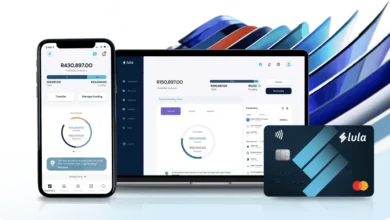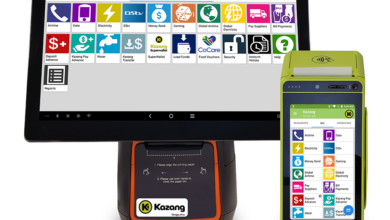How to Implement an Effective CRM System in South Africa

In today’s competitive business environment, implementing a Customer Relationship Management (CRM) system is crucial for companies looking to enhance their customer interactions, streamline operations, and boost profitability. South African businesses, like their global counterparts, must carefully consider the unique dynamics of their markets when adopting CRM solutions. Here’s a guide on how to implement an effective CRM system in South Africa.
1. Identify Business Needs and Objectives
Before implementing a CRM, it’s vital to understand why you need one. Consider the specific business goals you want the system to address, such as improving customer service, increasing sales, or automating marketing efforts. Define measurable objectives and prioritize the features required for your South African market, like integration with mobile payments (common in many African countries) or compatibility with regional compliance standards like the Protection of Personal Information Act (POPIA).
2. Choose the Right CRM Software
Selecting the right CRM software depends on the size of your business, the nature of your customers, and your industry. There are various CRM providers available in South Africa, including international giants like Salesforce, HubSpot, and Zoho, alongside local providers such as Pinewood DMS and Adapt IT. Consider factors such as scalability, ease of use, customization options, and the ability to integrate with other tools and software already in use within your organization.
3. Ensure Compliance with POPIA
The Protection of Personal Information Act (POPIA) in South Africa regulates how companies handle personal data. Any CRM system you implement must comply with these regulations to avoid hefty penalties and to build trust with your customers. Make sure the system has features to manage consent, anonymize data, and easily delete or update customer information as required by law.
4. Train Your Staff
A CRM system can only be as effective as the people using it. It’s essential to train your staff to fully utilize the CRM’s features. Offer comprehensive onboarding and ongoing training to ensure employees understand how to enter, access, and manage customer data. Focus on demonstrating the benefits of CRM for daily tasks, including enhancing productivity and improving customer interactions.
5. Focus on Data Quality
One of the most significant benefits of a CRM system is its ability to offer data-driven insights. However, poor-quality data can undermine the effectiveness of the system. Ensure that customer data entered into the system is accurate, up-to-date, and complete. Regularly audit the data to prevent duplication, inconsistencies, or outdated information.
6. Customize for Local Needs
South Africa is a diverse market, with varying customer expectations across different regions and industries. Customize your CRM system to reflect local needs, such as multi-language support (English, Zulu, Afrikaans, etc.), customer segmentation based on demographics, and localization features like local currency integration. Consider the cultural nuances that might affect customer behavior and interaction patterns in South Africa.
7. Integrate with Other Systems
For maximum efficiency, ensure that your CRM system integrates with other key tools in your business ecosystem, such as ERP (Enterprise Resource Planning) systems, accounting software, email platforms, and social media channels. A fully integrated CRM can give a 360-degree view of customer interactions, leading to improved decision-making and more personalized marketing efforts.
8. Leverage Mobile CRM Solutions
With the increasing prevalence of mobile devices in South Africa, businesses should consider mobile CRM capabilities. This is particularly important for sales teams and customer service agents who may need to access customer information and update records while on the go. Mobile CRM solutions can help improve customer engagement and response times, particularly in industries like retail, real estate, or insurance.
9. Monitor and Measure Performance
Once the CRM is implemented, it’s crucial to track its performance against the objectives you set. Use the CRM’s analytics features to monitor key metrics such as customer acquisition rates, sales conversion rates, and customer satisfaction levels. This data will help you assess the system’s success and identify areas for improvement.
10. Continuous Improvement
CRM is not a “set it and forget it” solution. The system should evolve as your business grows and as customer needs change. Regularly review the CRM to ensure it is still aligned with your business goals, and update the software to take advantage of new features and security improvements. Stay on top of local market trends and evolving customer expectations to continuously refine your CRM strategy.
Implementing an effective CRM system in South Africa involves more than just purchasing software. It requires careful planning, training, and customization to ensure the system meets the specific needs of your business and the local market. By focusing on customer data quality, compliance, and integration with other tools, you can create a CRM system that enhances customer relationships, streamlines operations, and drives business growth in the competitive South African landscape.




